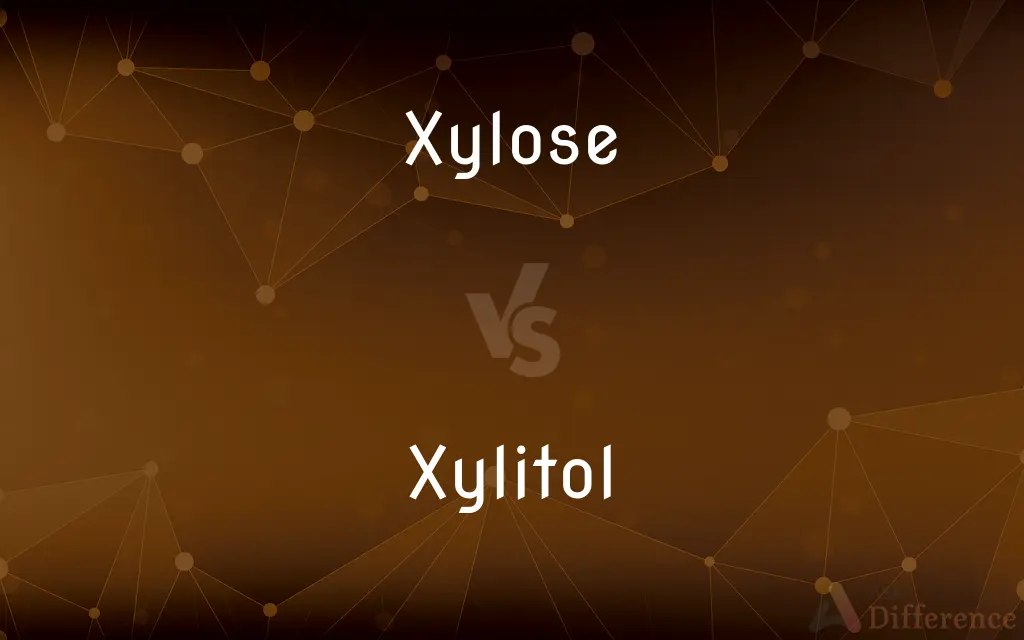Xylose vs. Xylitol — What's the Difference?

Difference Between Xylose and Xylitol
ADVERTISEMENT
Compare with Definitions
Xylose
Xylose (cf. Greek: ξύλον, xylon, "wood") is a sugar first isolated from wood, and named for it.
Xylitol
Xylitol is a chemical compound with the formula C5H12O5, or HO(CH2)(CHOH)3(CH2)OH; specifically, one particular stereoisomer with that structural formula. It is a colorless or white crystalline solid that is soluble in water.
Xylose
A crystalline monosaccharide, C5H10O5, that is a component of most hemicelluloses in plants. Also called wood sugar.
Xylitol
A sweet white crystalline alcohol derived from xylose, C5H12O5, used in gum and oral health products to inhibit bacteria that cause caries and as a dietary sugar substitute.
Xylose
(carbohydrate) One of the pentoses, C5H10O5, a white crystalline sugar, derived from wood.
ADVERTISEMENT
Xylitol
(chemistry) A pentahydric alcohol, C5H12O5, penta-hydroxy pentane; derived from xylose; used as a sweetener.
Xylose
An unfermentable sugar of the pentose class, C5H10O5, formed by the hydrolysis of xylan; wood sugar.
Xylose
A sugar extracted from wood or straw; used in foods for diabetics
Share Your Discovery

Previous Comparison
Hogan vs. Yurt
Next Comparison
Square vs. Quadrilateral














































